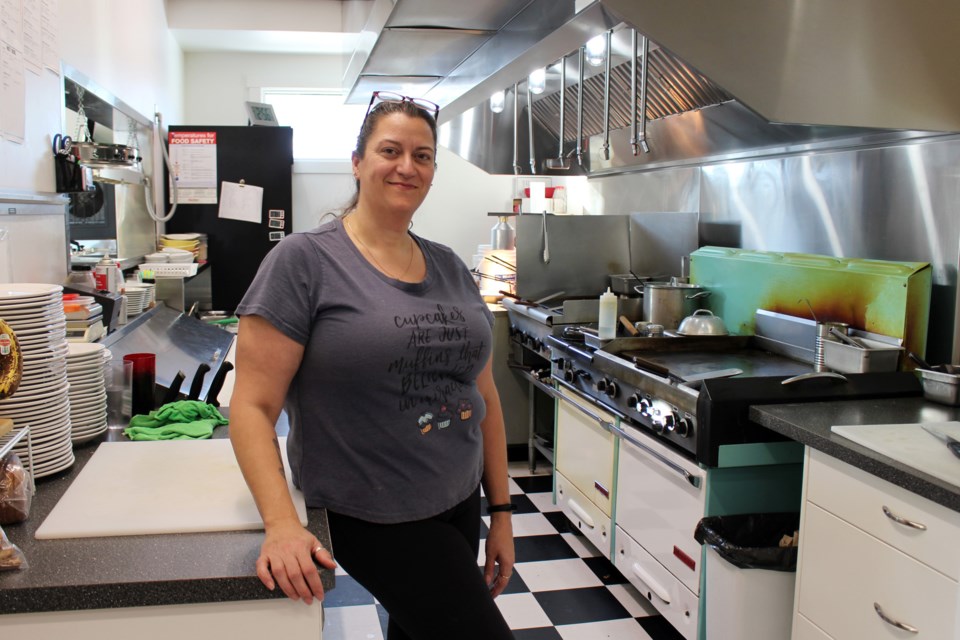BONNYVILLE – “Sometimes, someone comes into your restaurant unexpectedly and they make your heart race. You want everything to be perfect for them, and we call those people the health inspector.”
Jennie Hamel, owner of Jennie’s Diner and Bakery in Bonnyville, described a random inspection by an Alberta Health Services (AHS) health inspector as nerve-wracking, even if everything is up to code.
“It’s like seeing an RCMP officer drive up behind you. You’re going to speed limit with your seatbelt on and you’re doing nothing wrong. You still hit the breaks, start to sweat, and try desperately to be perfect,” she detailed.
Restaurants work to keep themselves up to code because an inspection could happen at any time.
“They just pop in,” noted owner and operator of the Players Lounge in Bonnyville Brad Tawil. “There’s no warning or any notice beforehand… Sometimes they come once a month, other times they come every three months. It’s unpredictable.”
In order to protect the health and safety of Albertans and tourists, AHS conducts routine inspections of food facilities, responds to complaints, and follows up on past inspections randomly. The frequency of the unannounced visits depends on the risk assessment of the business.
Tawil and Hamel agreed inspections are likely done this way to ensure businesses strive to keep their facilities in tip-top shape all year.
“If you know you have company coming, you clean your house. When you have people unexpectedly show up, you’re either praying your house is clean or hoping that they don’t care,” Hamel added. “But, with the health inspector, you always want to be clean and you want everything done right. Not knowing when they’re going to come makes you always have that ‘is everything going to be done? Is today the day they come?’”
Some of the aspects a health inspector is on the look out for includes if a restaurant’s food-handling permit and business license are displayed, that all work stations follow food safety regulations, all freezers and fridges are the proper temperature for storing food, and for everything to be free of contamination.
According to Tawil, an inspection can take anywhere from 30 to 45 minutes depending on the size of the establishment.
“They start with the kitchen, and mostly focus in there. They check the cleanliness of the facility, starting from the dishwasher to the cooler, the floors to the pots and pans. Then they check the temperatures of the walk-in freezers and coolers, and the line fridge where we keep the food waiting to be prepared. Then, they make sure all the chemicals that we use to clean the kitchen and the store are according to code and we’re not using any products that aren’t approved by AHS,” he detailed.
Tawil and Hamel said neither of their locations have received any major violations during their inspections.
“There’s always things that (the health inspector) can pick up on,” Hamel noted. “Like ‘your hand sanitizer is a little too strong’ or ‘your hand sanitizer isn’t strong enough;’ little things like that. Each one looks at different things.”
Although businesses aren’t required to display the results of inspections, they can be found on the AHS website, including non-critical violations.
“AHS is very transparent when it comes to inspections, and you can pull up any business in Alberta,” said Tawil.
In other provinces, restaurants undergo programs, such as DineSafe in Toronto, ON, that lets customers know if they’re up to code or not through a grading system displayed in the establishment's window.
Although this has been implemented in other communities, Hamel prefers the system Alberta has in place.
“Even when people give bad reviews to a restaurant, people tend to stay away a little bit… Even though someone might have received a violation, it could have been nothing major, but sometimes it snowballs and it just goes from there. I think a lot of the time the public would just rather not know, and sometimes not knowing that your favourite restaurant has an issue is better than knowing.”



